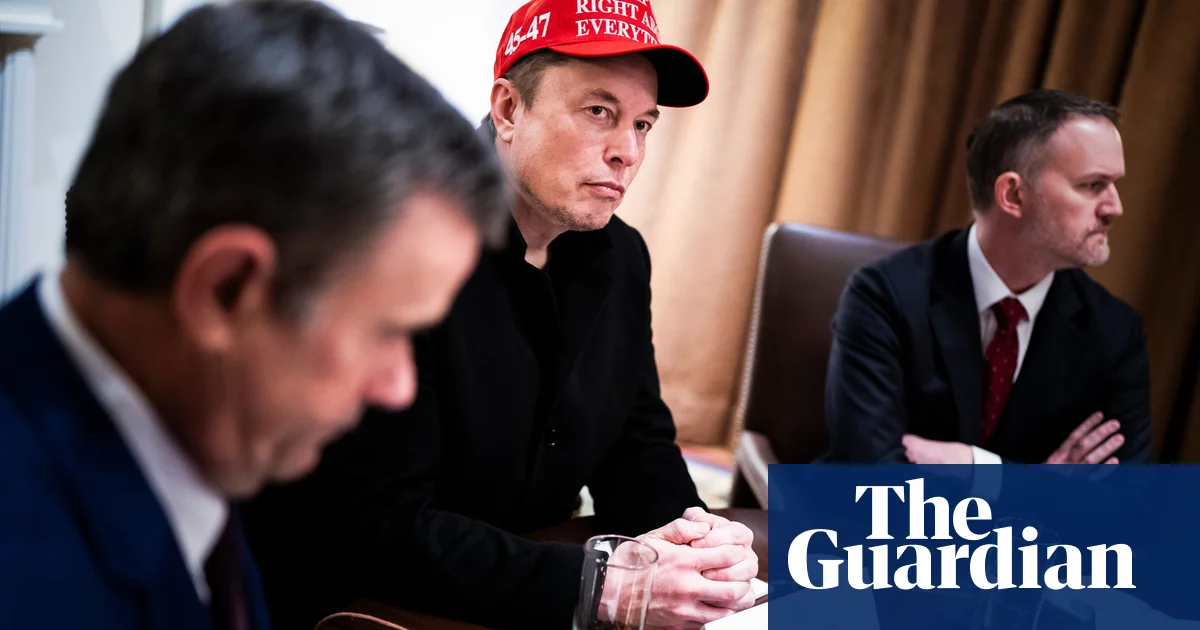Elon Musk’s polarizing stint slashing and bashing federal bureaucracy will probably soon end, with the world’s richest person’s government service hitting its legal limit in the coming weeks.
“He’s got a big company to run … at some point he’s going to be going back,” Trump told reporters on Monday.
“I’d keep him as long as I could keep him,” the president added.
As a special government employee, Musk faces a strict 130-day cap on his service – probably expiring in late May if counted from the day of inauguration, despite earlier White House claims Musk was “here to stay”.
Administration insiders told Politico on Wednesday that Musk would indeed be stepping down from his lead role in the weeks to come.
But the White House press secretary Karoline Leavitt on Wednesday called Politico’s reporting “garbage”.
“Elon Musk and President Trump have both publicly stated that Elon will depart from public service as a special government employee when his incredible work at Doge is complete,” she said.
The White House did not immediately respond to the Guardian’s request for comment.
While Musk looks for the exit door, his “department of government efficiency” (Doge) is set to continue until 2026 under Trump’s executive order, and high-level leaders installed by Musk to run agencies throughout the government are likely to outlast the billionaire’s tenure in public service.
Doge has operated figuratively – and one time literally – with a “chainsaw” through government agencies since Musk joined Trump’s team as an unvetted, high-level employee in January.
Doge has since triggered large-scale civil service layoffs including about 10,000 people at the Department of Health and Human Services this week alone, while moving to eliminate entire agencies such as humanitarian-focused USAID and the state-backed global media outlet Voice of America.
There have been an estimated 56,000 federal jobs cut since 20 January and another 75,000 accepting voluntary buyouts, with at least another 171,000 planned reductions, according to the New York Times.
The huge cuts have not gone over well, according to a new poll from Marquette Law School, which found that just 41% of the US public approve of Doge’s work, while Musk’s personal likeability was even lower, at 38%.
A mid-March Quinnipiac poll found that over half the country believed Musk and Doge were harming the US.
Doge claims $140bn in savings already – though eagle-eyed reporters have identified significant errors in these calculations. Musk told Fox News he expected to accomplish “most of the work required to reduce the deficit by $1tn” before his time expires.
The billionaire’s involvement has raised significant conflict-of-interest concerns given his companies’ extensive government contracts, though as a special government employee, his financial disclosure forms remain confidential.
The nearly shuttered USAID had initiated an investigation on agency oversight into Starlink terminals sent to Ukraine, the Consumer Finance Protection Bureau was targeted nearly a week after publishing a rule that would put technology companies like X – which was planning a partnership with Visa – in its crosshairs over regulation, and many other agency attacks.
Democrats have increasingly targeted Musk politically, most recently criticizing his over $20m investment in a Wisconsin supreme court race. The New Jersey senator Cory Booker broke the record for longest speech in Senate floor history after more than 24 hours assailing Trump and Musk.
